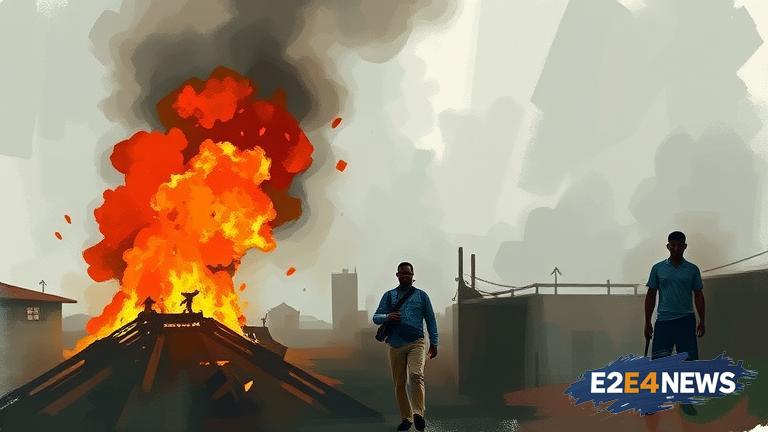The Imo State government has reacted to a recent report by the Committee to Protect Journalists (CPJ) and the Centre for Journalism Innovation and Development (CJID), which ranked the state as the most dangerous for journalists in Nigeria. The report highlighted the increasing number of attacks on journalists and media outlets in the state, with many cases of intimidation, harassment, and violence. The Imo State government, however, has disputed the ranking, stating that it has taken significant steps to improve press freedom and safety in the state. According to the government, several initiatives have been implemented to protect journalists and promote a free and independent press. These initiatives include the establishment of a press freedom committee, which aims to investigate cases of attacks on journalists and provide support to those affected. The government has also increased security measures for journalists, including the provision of security personnel to accompany journalists on assignments. Furthermore, the government has engaged in dialogue with media stakeholders to address concerns and improve the overall environment for journalists. Despite these efforts, the CJID report noted that Imo State still lags behind other states in terms of press freedom and safety. The report cited cases of journalists being arrested, detained, and tortured by security agents, as well as the destruction of media equipment and facilities. The CJID also expressed concern over the growing trend of online harassment and intimidation of journalists, which has created a culture of fear and self-censorship. In response to the report, the Imo State government acknowledged that there were still challenges to be addressed, but emphasized its commitment to upholding the principles of press freedom and safety. The government pointed to the recent passage of the Imo State Press Freedom Law, which provides legal protection for journalists and media outlets. The law also establishes a press freedom commission, which will be responsible for investigating cases of attacks on journalists and providing compensation to those affected. The government has also launched a public awareness campaign to promote press freedom and safety, which includes workshops, seminars, and community outreach programs. Additionally, the government has established a hotline for journalists to report cases of attacks or intimidation, and has pledged to investigate all cases thoroughly. The CJID report has sparked a national debate on press freedom and safety in Nigeria, with many calling for greater protection for journalists and media outlets. The report has also highlighted the need for greater accountability and transparency in the handling of cases involving journalists. As the Imo State government continues to grapple with the challenges of press freedom and safety, it is clear that more needs to be done to address the concerns of journalists and media stakeholders. The government must take concrete steps to implement the recommendations of the CJID report, including the establishment of a functional press freedom commission and the provision of adequate security measures for journalists. Ultimately, the safety and freedom of journalists are essential to the health of democracy, and it is the responsibility of the government to ensure that these rights are protected. The Imo State government’s response to the CJID report is a step in the right direction, but more needs to be done to address the systemic challenges facing journalists in the state. The government must work closely with media stakeholders to build trust and promote a culture of press freedom and safety. By doing so, Imo State can become a model for press freedom and safety in Nigeria, and contribute to the growth and development of a vibrant and independent media landscape.
